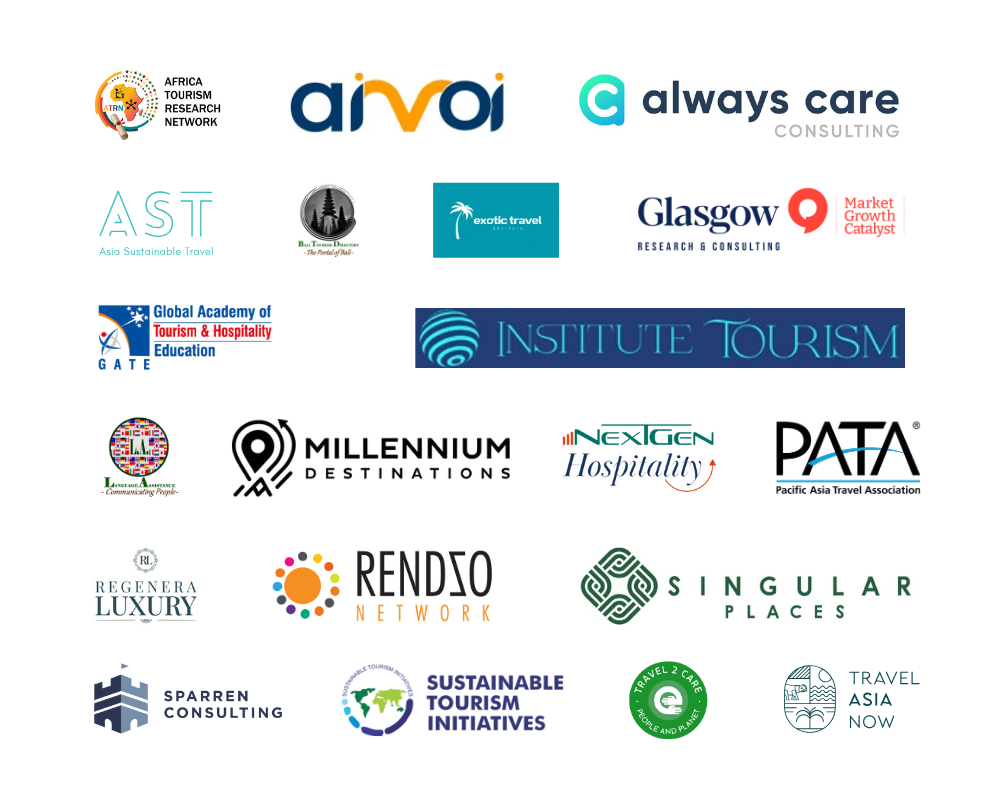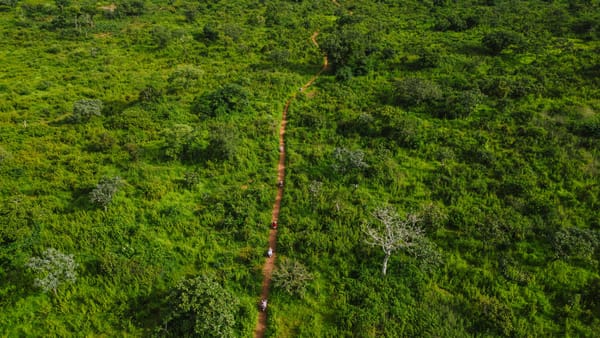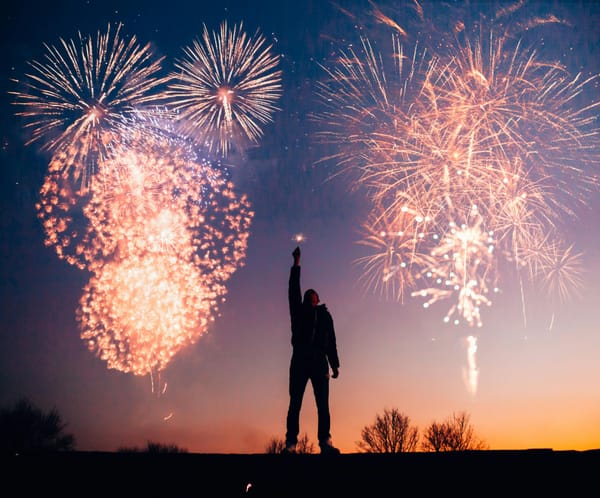Nepal: Lessons for the global tourism industry


Dear reader,
the streets of Kathmandu are full of cars and bikes again and life has gone back to normal. However, the burned-out buildings dotting the capital and many other cities of Nepal are a stark reminder of the unrest in the last week, which led to the fall of the government and the establishment of a caretaker government supported by the army.
The Nepal Tourism Board and the Hotel Association of Nepal are assuring potential visitors that it is safe to come and to visit this truly wonderful and hospitable country for sightseeing, hiking or trekking, home also of the headquarter of the Meaningful Tourism Centre and of your humble editor.
Parliament, department stores, and most of the hotels will be rebuilt eventually. How fast Nepal’s image as a safe destination can recover from the damage will depend on the level of political stability achieved in the coming months, which are supposed to lead to elections bringing in new political leaders on a firm constitutional base. India, China and the USA will try to influence the situation, as will the forces still supporting the former king.
Everybody in the global industry should support the colleagues in Nepal to rise again from the ashes, unfortunately, in many cases in a very literal sense. For the rest of the world, valuable lessons can be learned from the events in Nepal, reinforcing the need for Meaningful Tourism as a strategy which aims at measurable material benefits and high levels of satisfaction for all stakeholders.
The young people’s protest was fuelled not only by the rampant corruption but also by the relevant lack of opportunities in the tourism industry as well as in other sectors. Local communities could not get their fair share of the benefits, companies stayed on a micro- or small-company level, making it difficult to innovate beyond the traditional sightseeing and trekking offers. Those visitors who made it to Nepal almost always fell in love with the place; however, with a mere million visitors a year, too few ever reached this stage.
Another insight is the confirmation of the ever-growing importance of social media in all steps of the process. Social Media made visible the obscene flaunting of a luxurious lifestyle by the children of the rich and mighty, enjoying the spoils of nepotism, accordingly nicknamed the “Nepo Kids”.
The turning off of 26 Social Media platforms, including WhatsApp, Facebook, LinkedIn, YouTube, and many other popular apps, provided the trigger for the Gen Z movement to mobilize in big numbers onto the streets. The organisers of the demonstrations found other ways to communicate online and managed to do so without any obvious leaders or formal organisational structures.
Social media also guaranteed that the image of the burning Hilton Hotel, the highest hotel building in the country, reached audiences faster and more thoroughly than, for instance, the picture of the crashing Twin Towers in New York in 2011. Probably more than half of mankind and certainly 95% of potential international visitors to Nepal have the images and will need a more transparent form of communication about the situation than just “Don’t worry” messages. If you ask Gemini about Crisis Management, you get the answer “Transparency is key to maintaining trust.”
The Meaningful Tourism Centre is back and working regularly again. Your humble editor is currently in Guangzhou talking with partners about the China-Africa Meaningful Tourism Partnership, recently incorporated in Switzerland. Afterwards, there will be two interesting days in Guilin at the PATA-UN Tourism Summit, which will be reported upon in the coming edition of Meaningful Tourism.
In this edition, we start as promised a five-part series of articles by our trainer Max Haberstroh, looking at tourism with a Faustian view.
In Nepal, the festive season is coming near. Information about the closure of the office during Dashain and Tihar can be found in the MTC News section. The Meaningful Tourism Weekly will be published regularly, albeit again in slightly reduced form.
As always, all best wishes from Prof. Dr. Wolfgang Georg Arlt and the whole Meaningful Tourism Weekly team in Kathmandu and in Manila!


This is the first of a five-part series of articles written by our Certified Trainer for Switzerland, Max Haberstroh, using Johann Wolfgang von Goethe's famous theatre play, Faust, to discuss the development and future of tourism, including the darker side of the success story.
The Great Game for a Higher Purpose
Part I
The 'Commercial Soulmate' of Charitable Hospitality
Five years ago, the pandemic broke out. Using Covid-19 as the recurrent theme, this essay (no AI support) wants to extrapolate to our time Faust's human drama. The focus on Travel & Tourism may identify major aberrations, but also offers new chances for a sector at the crossroads: Either we really mean our own claim to concretize 'meaningfulness', or we continue to just pay lip-service to sustainability and solidarity, while serving mainly monetary rules. In this case, Travel & Tourism, divested of its 'soul', would be going deeply 'Faustian'.
Part I (of V) explains the rise and fall of ambiguous characters, with an emphasis on Goethe's Faust and the drama's repercussion abroad. The pandemic and intense signs of unrest and war, and their impact on society and economy provide the timely backdrop, as the Travel & Tourism sector was officially declared "non-relevant" during Covid-19.

Faust – an 'Optimistic' Tragedy
Hardly has any other piece of classic literature kept scholars and students, stage managers and writers as busy as Johann Wolfgang Goethe's 'Faust' drama: Thomas Mann and Christopher Marlowe used it as a template for 'Dr. Faustus', Gotthold Ephraim Lessing left a fragment of the Faust topic. Franz Liszt composed his 'Faust-Symphony'and Charles Gounod the 'Faust Opera'. Mikhail Bulgakov's classic Soviet novel 'The Master and Margarita' experienced a remarkable revival in today's Russia. Even priests, like Gounod's French compatriot André Dabezies, were motivated to embark on 'Faust': Dabezies dedicated his belated dissertation to the theme "Visages de Faust au XXe siècle" (The Faces of Faust in the 20th Century).
Intellectuals from China found – and still find – Faust highly congenial to the Chinese enlightenment discourse and its turning points in the 20th and early 21stas centuries. Wang Guowei (1877-1927), historian and poet, called Goethe's Faust "the best literary work of European modern age". For scholars of the People's Republic, Faust is an "optimistic tragedy", hailing the hero's "indefatigable search of truth" and his will to succeed as a 'Global Player' (Academia Updates, Aug. 13, 2025). Ever since published, controversies about ‘Faust’, his character and social impact have not ceased to cause quite a stir.
Certainly, Faust is ambivalent. Modern research describes his character as neither idealistic nor worth condemning, nor incorrigible. He is no super-man, but certainly not average. Faust is an ‘arch-type’, in a sense that he integrates within himself all the positive and negative characteristics of a human being. Exceptional in his ambitions to go as far as to understand the totality of knowledge and existence (“that I may understand whatever binds the world’s innermost core together”), Faust insatiably desires to expand, like a ‘wanderer’ who unfortunately cannot help but fall back to the cramped spaces of his origins. In Goethe's drama, we can see an allegory of our modern society – and of Travel & Tourism.

Combining sustainable luxury, cultural authenticity, and community support

Prakriti Resort and Organic Farm offers an eco-friendly retreat that combines sustainable luxury, cultural authenticity, and community support. Nestled within Shivapuri Nagarjun National Park, the resort invites guests to explore organic farms, enjoy locally sourced cuisine, and immerse themselves in Nepali traditions.
Each stay helps preserve the surrounding environment and supports local livelihoods, creating a transformative experience that connects visitors deeply with nature and culture.
This approach to hospitality also reflects the principles of Meaningful Tourism, where travel becomes more than just leisure and becomes a force for positive change.
This article was originally published on the Prakriti Resort and Organic Farm website.

Office closure times in the festive season
The security situation in Nepal is back to normal; however, the festive season is coming along with the two main festivals, Dashain and Tihar. Therefore, the MTC office will be closed for the weeks of September 26 through October 4 and again from October 17 through 25.
For urgent requests, use the email arlt@china-outbound.com.
MTC founder and one of the Meaningful Tourism Transformational Game Workshop certified trainers named as two of 16 important tourism experts by Santiago Rodriguez PhD
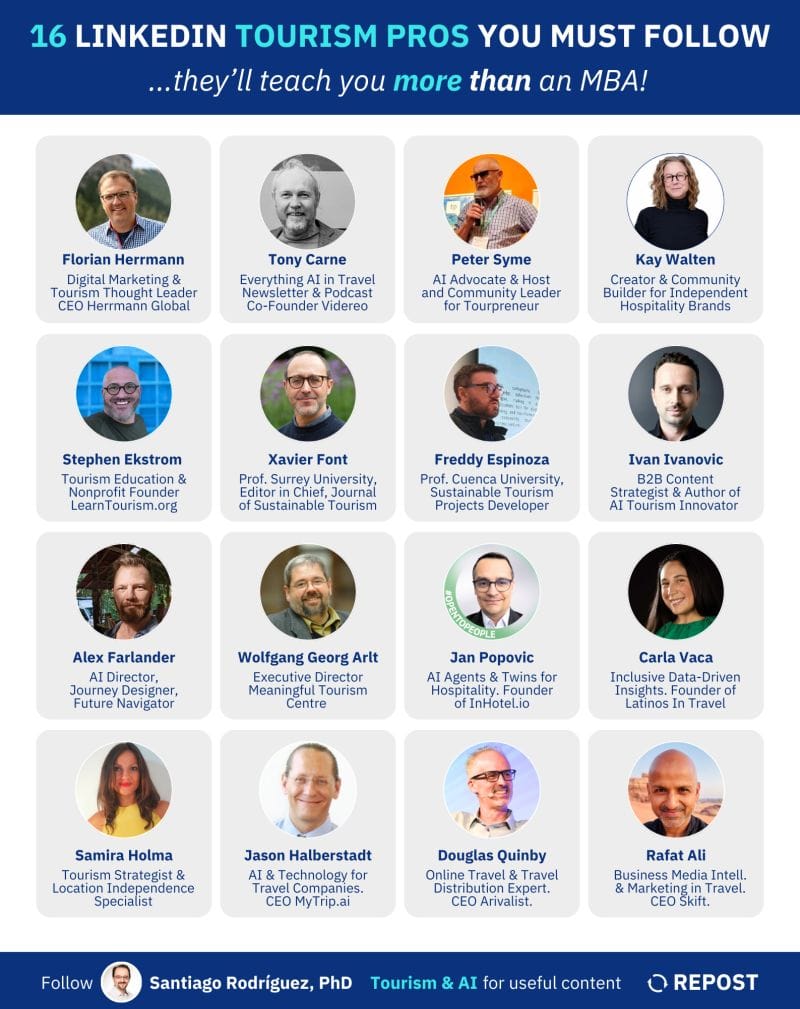
Remembering lives lost: A tribute to Nepal and a dear colleague
Headquartered in Kathmandu/Nepal, MTC is honouring the officially 72 dead of last week's events in the country, including demonstrators shot by the police, policemen, prisoners killed during the breakout of 15,000 inmates all over the country, and many persons burned to death in the more than 500 destroyed government offices, department stores, hotels, and private homes.
On September 17th, 2025, the whole country stopped the renewed normal life for a national day of mourning. Let us honour all of them by helping the Nepal tourism industry to thrive.
Another sad news arrived this week: Our dear colleague, supporter and good friend Ashraf El Gedawy died last Friday in Cairo as a result of a heart attack.
For many years, he served as the Site Editor-in-Chief of the First Electronic Tourism Newspaper in the Arab World, named Almasalla Portal News. He was a prominent and respected figure in Egypt and the whole Arab world. He issued this first Arabic-language online newspaper specializing in travel and tourism in the Arab World in 2005. He was also a regular writer and Deputy Editor-in-Chief of the major Egyptian Magazine Al-Mousawar.
He has been supporting Meaningful Tourism in the Arab speaking world, publishing the last news about Meaningful Tourism at the Bangkok Travel Mart just two weeks ago. Last Friday, he sent a message inquiring about the situation in Nepal and sending his best wishes for all of us in Nepal. Shockingly, he died a few hours after sending this message. He made the world a better place. May he rest in peace! Carpe Diem!
Forget sustainable tourism – It’s time to get meaningful
Professor Arlt’s Meaningful Tourism Centre challenges traditional tourism models, advocating for a balanced, enriching experience for all stakeholders.
Professor Dr. Wolfgang Georg Arlt has long been a familiar figure on the global tourism stage, yet his latest venture has the potential to shape the industry in profound ways.
When David Barrett, host of the Trends series, met Dr. Wolfgang on the trade show floor of PTM2025 in Bangkok, organised by the Pacific Asia Travel Association, one quickly senses that the Meaningful Tourism Centre is not simply another institution producing academic papers and grand ideas. It is a call to action for an industry too often buffeted by buzzwords and short-lived slogans.
The Meaningful Tourism Centre was established in Kathmandu during the pandemic when travel was brought to a standstill and many in the tourism industry found themselves searching for fresh perspectives. It was in that period that Professor Arlt coined the term meaningful tourism. The phrase has since gathered momentum. PATA itself has adopted the concept as its vision for an Asia Pacific tourism economy and Professor Arlt is quick to point out that this represents a personal milestone. For him, meaningful tourism is not a theory but a lived philosophy.
The core of his approach is deceptively straightforward. Tourism involves many stakeholders and all of them must derive both tangible benefits and subjective satisfaction if the industry is to prosper. Too often the conversation has centred on one party at the expense of others. For years the customer was king, then the host community took centre stage. Governments demanded tax revenues. Companies pursued profit. The environment was increasingly invoked as the ultimate victim. Employees meanwhile were left with seasonal contracts, low wages and little recognition. Professor Arlt insists that such imbalance cannot endure. Tourism must align the interests of travellers, communities, workers, companies, governments and the environment. Only then will it have a future that is both profitable and sustainable.
Professor Arlt is not dismissive of other approaches. Sustainable tourism has been a rallying cry for decades but he argues the term has been overused and stripped of meaning. Responsible tourism has value but carries the faint echo of a parental lecture. Regenerative tourism is fashionable but couched in technical language. Meaningful tourism by contrast resonates on a human level. After the pandemic, people discovered that life is fragile and time is precious. Travel should therefore provide enrichment as well as enjoyment. It should transform both visitor and host. A photograph of a temple may be pretty but a conversation with a local priest is meaningful.
Workshops run by the Meaningful Tourism Centre are designed to make this principle real. Rather than sit through a slide presentation participants are asked to role play. A government official might become a hotel cleaner for the day. An airline executive might play the part of a market stall holder. In walking a mile in another’s shoes they acquire empathy and understanding. They also leave with tools and measurable performance indicators. Professor Arlt is adamant that unless progress can be measured it cannot be managed. Host communities should be asked whether they welcome visitors. Employees should be assessed for satisfaction. Tourists should be surveyed for the depth of their experiences. Only by tracking such data can destinations adapt and improve.
The reception to these ideas has been striking. At PTM2025, many delegates approached Professor Arlt, keen to learn more. He has built a global network of fifty trainers stretching from Canada to South Africa and from Finland to Australia. Each shares a commitment to rethinking the way tourism is organised and delivered. For PATA, the adoption of meaningful tourism as its vision has already energised debate and inspired member states to reconsider policy. At a forum earlier this year, delegates endorsed the idea as a necessary response to a world in flux.
Professor Arlt is also clear-eyed about the challenges ahead. Tourism, which once basked in the glow of being a force for good, is now often cast as a villain. Airlines are accused of fuelling climate change. Cities complain of over tourism. Politicians find it convenient to tax foreign visitors. To restore the reputation of travel, the industry must show it is part of the solution. By demonstrating that tourism can enrich societies protect the environment and deliver joy it can once again be counted among the good guys. Meaningful tourism is the professor’s vehicle for that rehabilitation.
The geographical spread of his mission reflects his belief that Asia is the future. Having moved to Nepal he argues that cultures in Asia are more accustomed to the idea of harmony and collective benefit. Europe and North America remain more individualistic and confrontational. Yet the pressures of climate change and social upheaval will eventually force a shift everywhere. When beaches become unbearable at 50 degrees, and city streets stifling in the summer sun, tourists will demand a new approach. The industry must adapt or risk decline.
At the heart of the Meaningful Tourism Centre is an insistence that tourism is not a frivolous indulgence but a serious component of the global economy that shapes livelihoods identities and even international relations. It can still bring peace and understanding if managed with wisdom. For Professor Arlt the measure of success will not be in the number of arrivals or the size of receipts alone but in the extent to which travel leaves life richer for all parties. That is the mark of meaningfulness. And as he reminded his audience at PTM2025, organised by PATA, the stakes could not be higher. Tourism must show itself to be worthy of the trust placed in it by communities and travellers alike, for without meaning the journey itself has no destination.
This article was originally published in Travel Daily News Asia-Pacific.

Nepal safe for tourists to visit
Nepal was portrayed in a negative light globally once again last week due to the killing of dozens of youths and some security personnel, and unprecedented devastation of numerous public and private buildings and other properties in protests by Gen Z.
The sudden unrest sent such an undesirable message to potential international tourists that the Himalayan country was not safe for them to visit. Amid that scenario, many vacationers from around the world have cancelled their trip to the country for the current autumn season, much to the chagrin of airlines, hoteliers, tour operators, and other stakeholders.
Many visiting tourists had to endure hardships due to the closure of the country’s main gateway, Tribhuvan International Airport (TIA), and the disruption of major roads and highways. Hundreds of tourists resorted to shortening their trip to the country as protests raged on. And tourism entrepreneurs were quite concerned about their businesses during this season.
This article was originally published in The Rising Nepal, Nepal's first English broadsheet daily.

Meaningful Tourism Community: The Meaningful Tourism Transformational Game Workshop Trainer
Richard Julius, Trainer for South Africa
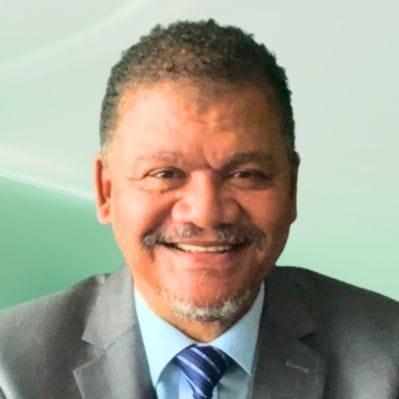
Richard Julius is an accomplished sustainable tourism trainer and consultant, bringing over 30 years of expertise in social impact, responsible tourism, entrepreneurship development, and cross-cultural capacity building across Africa, China, and Europe.
Renowned for his hands-on leadership and commitment to community empowerment, Richard has facilitated high-impact training programs in sustainable tourism and SME development for governments, NGOs, and private sector clients. He has played a pivotal role in advancing meaningful and sustainable tourism strategies, from grassroots entrepreneurship projects to cross-border collaboration. As a board member and advisor to multiple social impact and tourism organizations, Richard excels at connecting local communities to global opportunities, promoting heritage preservation, and fostering economic resilience through innovation and ethical leadership.

The Meaningful Tourism Weekly asked Richard: What is the current situation of tourism in South Africa, and how can the Meaningful Tourism Paradigm help to support its development?
His answer:
I am glad to see that South Africa’s tourism is recovering after the Covid period. By May 2025, it made up about 3.3 percent of GDP and supported around 1.8 million jobs. Arrivals are also growing.
However, this growth is not evenly shared. The official unemployment rate reached 32.9%, with youth unemployment at 46.1%. South Africa’s unemployment crisis makes inclusive, job-creating growth even more urgent.
Meaningful Tourism is a practical way to turn this tourism recovery into growth that includes everyone. It sets clear, simple measures to lift quality, benefits and satisfaction for the six groups that matter most, including tourists, host communities, employees, companies, governments and the environment. No one should be left worse off.
The Meaningful Tourism Index puts this into practice. It tracks 72 indicators and includes 12 baseline metrics that describe a country’s tourism system and its reliance on tourism. This helps leaders spot gaps and direct action where it counts. For context, the 2023 Index ranks South Africa 82nd out of 88 countries with an overall score of 32.45 percent, which is six places from the bottom.
If the Meaningful Tourism paradigm were implemented in South Africa, it would prioritize labor-intensive, community-linked products and small businesses. It would strengthen local supply chains and expand opportunities for young people and women by tapping tourism’s strong job creation potential. It would also help companies and the government align incentives and public support around shared KPIs that cover service quality, small business linkages, and better waste and water outcomes.
To build skills faster, the Transformational Game Workshop brings destination teams together to role play different stakeholder views and create SMART KPIs. They leave with a shared dashboard that keeps everyone focused on continuous improvement.
In short, tourism is bouncing back, but real constraints remain. Meaningful Tourism adds the measurement discipline and shared governance needed to turn today’s momentum into resilient, inclusive growth.
MTC Certified Trainers
Please find below the updated overview of all our Certified Trainers for the Meaningful Tourism Transformational Game Workshop and the updated World Map showing the countries directly and indirectly covered at the moment.
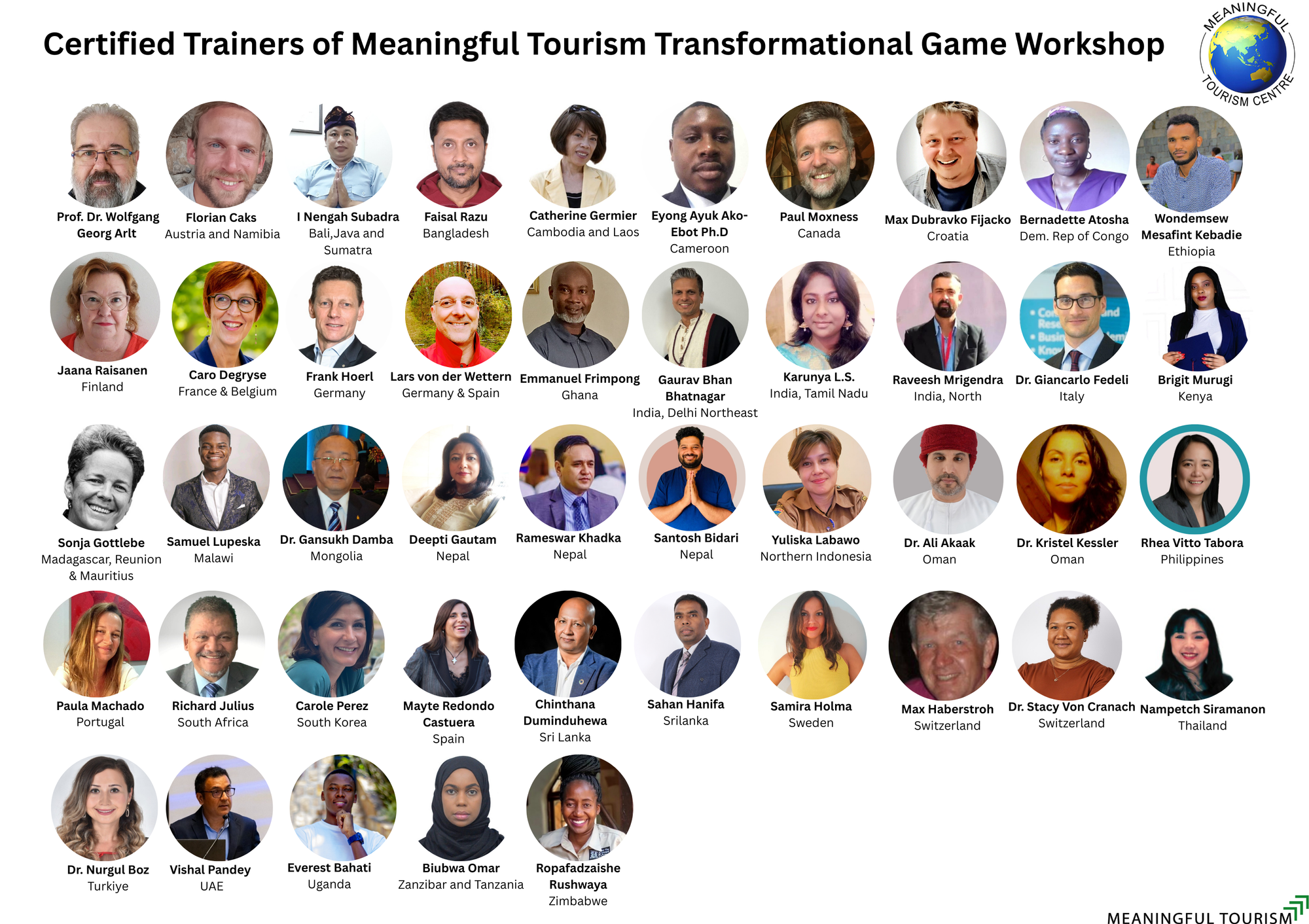
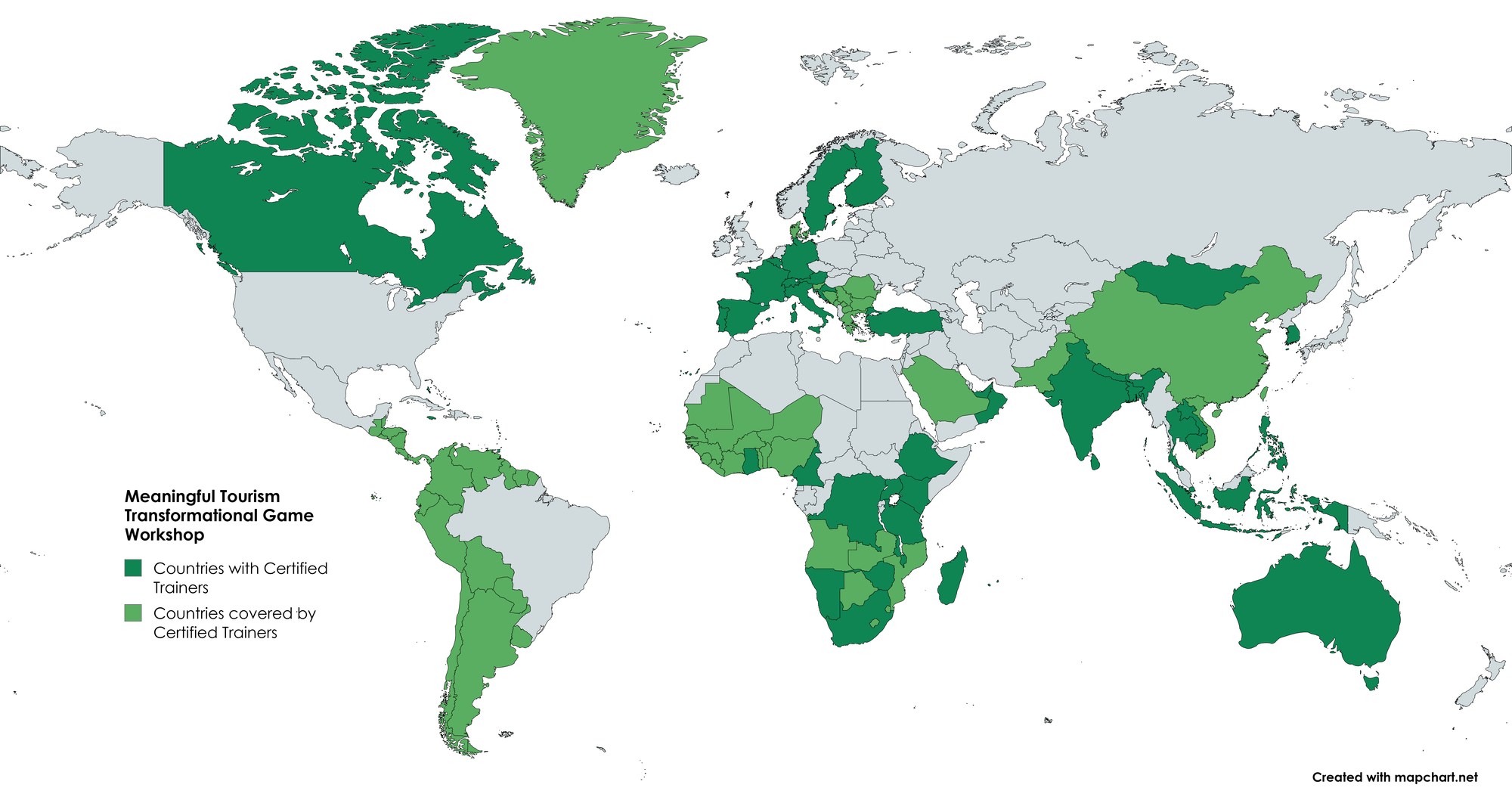
With almost 50 Certified Trainers, many countries and regions of the world are already covered. However, MTC continues to look for professionals with experience in training or lecturing and a passion for sustainable tourism.
If you are interested in becoming a Certified Trainer for the Meaningful Tourism Transformational Game Workshop for a country not marked in dark green on the map above, please contact us at office@meaningfultourismcentre.org.

Meaningful Tourism Transformational Game Workshop at World Travel Market, London
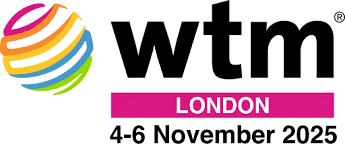
World Travel Market (WTM) in London is one of the must-attend annual events for key players in the tourism industry. The Meaningful Tourism Centre will offer a special Meaningful Tourism Transformational Game Workshop on the day before the start of WTM 2025, on November 3, 2025, from 9:00 to 16:00 hours. The workshop will be conducted by Prof. Dr. Wolfgang Georg Arlt FRGS FRAS, the founder of MTC.
There are only 30 seats available, so if you already know that you will attend WTM 2025, make sure you arrange your schedule to arrive on time for the training workshop on Monday, November 3, 2025.
Book your seat now and enjoy the Early Bird fee.
Venue: Central London, details to be advised. Transport from/to the hotel or Excel London can be arranged on request at a special rate.
• Early Bird participation fee for bookings paid before September 30, 2025: 175 Euros per person
• Full participation fee for bookings starting October 1, 2025: 200 Euros per person
VAT included if applicable.
Two or more seats booked at the same time enjoy an additional 10% discount.
Please note that payments are non-refundable. However, a change of participant is possible without additional fee until one day before the training workshop.
The participation fee includes training workshop participation, a certificate of participation, one year of free access to all content, including the Meaningful Tourism Weekly Library reserved for paid subscription holders, coffee/tea, cookies, and a vegetarian and non-vegetarian lunch buffet.
On the evening of November 3, 2025, there will also be a (self-paid) dinner followed by drinks with an opportunity to network with participants and to meet several of the Meaningful Tourism trainers from different countries.
For bookings, please contact office@meaningfultourismcentre.org.
Bookings will be closed once 30 reservations have been reached. Book today and enjoy the Early Bird fee.
#Nepal #South Africa #PATATravelMart2025
About Meaningful Tourism Weekly
Meaningful Tourism Weekly is published every Thursday by Meaningful Tourism Centre (MTC) - London and Kathmandu in collaboration with Travel Asia Now, led by Rhea Vitto Tabora. This partnership enhances the newsletter’s professional production and distribution, bringing added value to our readers.
Each issue features Editorial, updates on MTC activities, a Best Practice Example, a profile of an MTC-certified trainer, news about upcoming events, and occasionally additional op-ed pieces from guest authors. Carefully selected news items, including videos and podcasts, are also included, with links to their original sources in the Meaningful Tourism News section.
Subscription to Meaningful Tourism Weekly is free, with the addition of a paid content section that includes a library of surveys, exclusive articles, conference presentations, and statistical data, offering subscribers invaluable resources.
Sponsorship opportunities are available for those interested in supporting this initiative.
For more information about MTC's training programs, market research, product adaptation, consulting services, conferences, strategy development, and marketing, visit our website or email us at info@meaningfultourismcentre.org.

